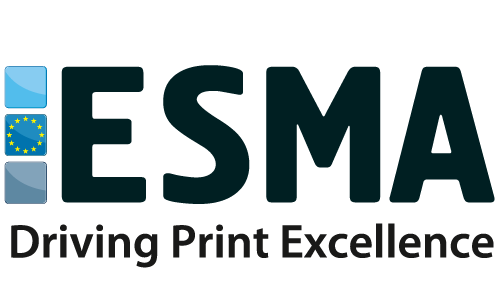Following its new focus on textile markets, the European Specialist Printing Manufacturers Association (ESMA) launches a brand new event to explain and inspire change within the industry. Textile Printing and Sustainability (TPS) conference takes place on 8-9 September 2022 at Dorint Kongresshotel Düsseldorf-Neuss and welcomes all involved in automatisation, new business models and best environmental practices for various textile applications.
“According to the European Environmental Agency, textile has the region’s fourth largest climate impact, following only food, housing and transport industries. The average European throws away 11 kilograms of textiles every year”, explains Peter Buttiens, CEO of ESMA. “Different international bodies throw their weight behind changing this. For example, the EU is introducing a digital product passport to boost circular economy. This forms an incentive for every step of textile production and workflow, to stimulate creative reuse, recycling and repurposing of materials and end products.”
Textile Printing & Sustainability looks at all critical factors and global trends which influence textile market condition today and in the nearest future: customer-made fashion, responsible businesses, quality concerns, customisation and personalisation. The event assembles industry experts from two main printing processes – screen and inkjet – to promote best practices, discuss new application fields and explain benefits and challenges of individual technology choices.
The first submitted contributions include a keynote address by Karin Ekberg from Leadership & Sustainability. Karin has a professional track record as Head of of Environmental Services at adidas Group and Chair of the Sustainable Apparel Coalition. Heiner Rupperath from Brother will look at the environmental challenges in hardware manufacturer operation and Dr Inga Barende from Covestro will introduce the raw materials perspective. Institute of Textile Technology at RWTH Aachen will share the latest know-how behind smart textiles.

In total 40 presentations are scheduled on two conference tracks, accompanied by a networking section with more than 40 tabletops representing key industry and academia players. The programme covers the entire supply chain and workflow, involves manufacturers of products for fabric handling (pre- and post-treatment), the printing process itself (inks and equipment), as well as printers, cutters, sewers, value added resellers and brand owners. From material science, through print systems, to micro-factories and finishing – TPS brings together all those who drive change and contribute to innovation.
With the existing resources and know-how accumulated over thirty years of its service to industrial, functional and specialist printing community, ESMA is confidently looking forward to welcoming OEMs, printers, innovators and brands at the inaugural edition of TPS. Together with their partner and industry veteran, Thomas Poetz, the organisers invite you to join this new platform for learning and networking about the disruptive developments in printing on all types of textiles.
“As natural resources diminish and the climate crisis grows acute, the question of more sustainable textile industry occupies the entire world. Proposed solutions include changes in supply chains, development of new fibres and chemistry processes, as well as digitalisation”, says Thomas Poetz. “According to one calculation, up to 790 billion litres of water could be saved on yearly basis if all textile printing moved from analogue to digital. Similar reductions can be achieved with innovative dyeing processes. And there are of course other potential savings in areas such as energy, transport or waste production. With the TPS conference we set up a platform for the industry and research centres, so that sustainable networks can develop.”

























